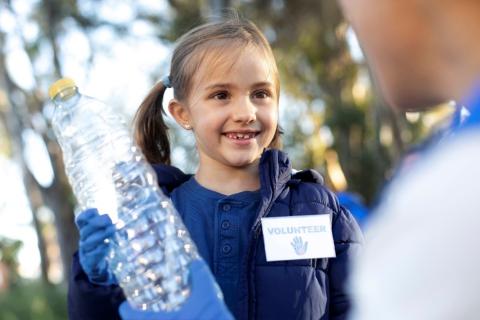
Children love to learn about their world! And they can be passionate about protecting the environment in which they love to play and experience.
There are many ways that children can get involved and learn about the importance of their local water ways. Below are some key points about why it’s important to educate children on protecting water quality.
To find educator resources please visit our Stormwater Quality Helpful Links Page.
To watch some fun videos and learn about stormwater and pollution prevention please visit our Stormwater Videos Page
Build Awareness Early!
- Teach children about stormwater pollution and how it impacts our environment.
- Kids can learn how everyday activities—like littering, car washing, and over-fertilizing lawns—can affect water quality. This knowledge lays the foundation for responsible behavior and better environmental stewardship throughout their lives.
Instill a Sense of Responsibility:
- Kids who learn about water pollution can develop a sense of responsibility toward their local environment.
- When they take part in stormwater quality efforts, such as a river-cleanup, they feel like they are doing something about the problems. And they are!
Long-Term Impact:
- The earlier kids learn and get involved, the more likely they are to carry the lessons learned into adulthood.
- This can create a generation that is more environmentally conscious and committed to sustainable practices, which can have a significant long-term impact on water quality and overall environmental health.
Encouraging Action:
- When kids participate in hands-on activities—such as planting trees, creating rain barrels or participating in a river clean-up, they become active participants in solutions.
- This "learning by doing" approach is often more effective than just receiving information.
Creating Community Engagement:
- Kids can serve as a bridge between schools, families, and local communities.
- As they learn about the importance of stormwater management, they can bring home their newfound knowledge and encourage family members to also understand the importance of protecting water quality.
Protecting Local Ecosystems:
- Kids are often curious and passionate about nature. By educating them on how stormwater runoff affects wildlife and local ecosystems, they can be inspired to protect and advocate for these areas, helping preserve local habitats and biodiversity.
Fostering Problem-Solving Skills:
- Involving kids in stormwater quality efforts encourages critical thinking and problem-solving.
- Whether they are identifying potential pollution sources or brainstorming ways to reduce runoff, kids learn how to think creatively and collaboratively to solve environmental issues.
